Civil Liberties, Criminalizing Dissent, FBI Intrusion, Human Rights, Truth to Power
Podcast: Play in new window | Download
Updates:
- New York Historical Society Recognizes Henry Kissinger, Co-host Michael Smith Resigns.
- Wikileaks Cable: Assistant Secretary Posner Discusses Operation Cast Lead With IDF
- Who Killed Che? How The CIA Got Away With Murder – Book Tour Continues
- OWS Precursor: Resurrection City – Michael Ratner On Jesse Jackson’s Radio Show
- Occupy Dartmouth: Heidi Boghosian
—–
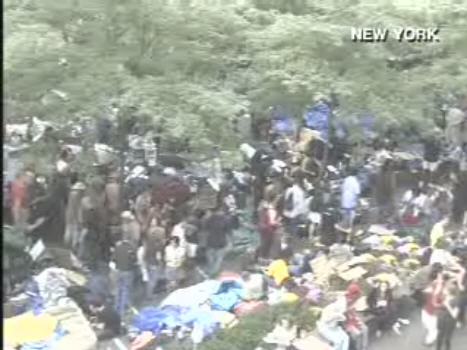
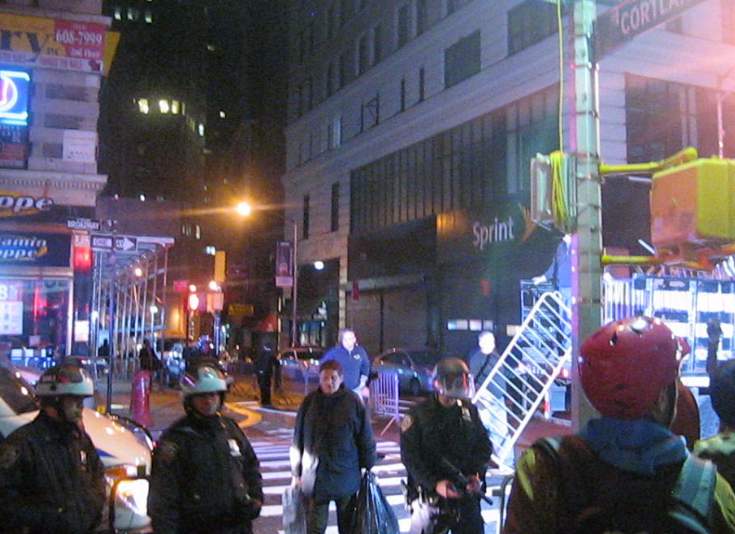
Occupy Hudson Valley and Bard College Student Movement
Activist and senior at Bard College, Ana Ratner joins the discussion on Occupy Colleges student movement in the Hudson Valley. Ana, Michael Ratner’s daughter, discusses the mistreatment of workers at the college, specifically employment contractors.
Ana Ratner:
- I think people on their own (at Bard College) had been concerned about the Occupy movement. It was around that time when people found each other and wanted to do something, weekly teach ins, general assemblies.
- At Bard we have a sub-contractor called Aramark .They treat their workers very badly.
- Through the Occupy movement more kids on campus are becoming concerned about worker’s rights and financial transparency and where our money is going, how it effects and who it effects.
- Occupy Poughkeepsie, a local movement, trying to connect the regions in the Hudson Valley. OccupyHudsonValley. They have tents and a kitchen.
- At Bard College: until the Occupy movement, no one really came together. I’m learning about the whole community at Bard.
- For the most part the workers are mostly invisible, they clean your dorm and campus. There’s a group called the Student Labor Dialogue.
- Aramark was kicked off at Bard College, now they want to hire another contractor.
Guest – Ana Ratner, activist and senior at Bard College. Ana has been active with the Occupy Colleges student movement and Occupy Wall Street.
——
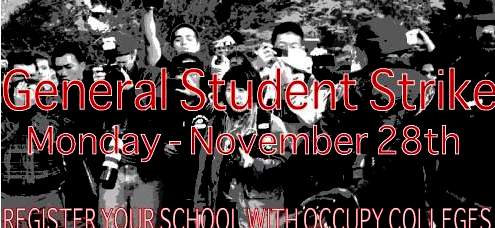
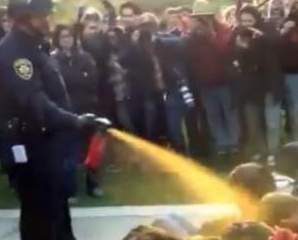
Occupy Colleges Los Angeles and Beyond
Last week, hundreds of students walk out of class and assembled in Union Square Park to demonstrate continued support with the Occupy Wall Street movement. The protests in New York City was part of a full week of student organized action that culminated in a march to Baruch College. This was where the CUNY Board of Trustees had met to vote on a possible tuition increase. Police and students clashed in the lobby in massive brawls, 15 people were arrested.
Natalie Abrams:
- OccupyColleges.org is all of the facilitators, it helps inform college students about the occupy movement.
- Ongoing occupy colleges action such as walk outs, teach ins, strikes, demonstrations
- Monday November 28th – In solidarity with UC Davis , UC Berkeley, CUNY Schools and all students who are defending their right to protest against rising tuition cost and out of control student debt. We ask you to STRIKE! No work, no school.
- We’re also circulating a pledge of non violence both for students and the UC Davis Presidents of all the eleven schools to commit to non-violence against students for a peaceful demonstration.
- Its gets harder to enforce non violence as they continue to hurt us.
- Non violence is our weapon.
- We’ve noticed that its all different types of schools, its private schools, its public schools, its community colleges, state colleges, the higher university levels, we really see the whole gamut of students that are joining us.
- Its horizontal, like the regular Occupy Wall St movement runs.
- We’re fighting the rising cost of tuition, the student loan fiasco and the fact that we have a lack of opportunities after graduation.
- Michael Ratner: Hunter College had no tuition from 1874 to 1975. One hundred years without tuition, so we see the shift that’s going on.
- It’s 3 times higher than it was in 1980.
- One of my first points of action is that these administrators need to take pay cuts.
- A lot of us got together from Occupy L.A. and from some past activist groups and we saw that New York schools were calling for a city wide walk out on October 5th and we noticed there wasn’t a national presence.
- We called for a national walk out and had 100 schools participate, almost 8000 students walk out. The interest from all of the students compelled us to continue with this movement. We give ideas to schools on how to set up their occupation. We want to have a very large teach in in the early Spring.
- When somebody else gets tired, somebody else is there to take their place.
- There are always new school calling us and signing up.
- I was called by the student tea party, who were horrified by the violence. The student tea party condemned the violence that happened at UC Davis.
- When we’re a non-violent movement the only way we can lose is by giving up. – Gene Sharpe
Guest – Natalia Abrams, one of the full time facilitators with the OccupyColleges.org website.
—-
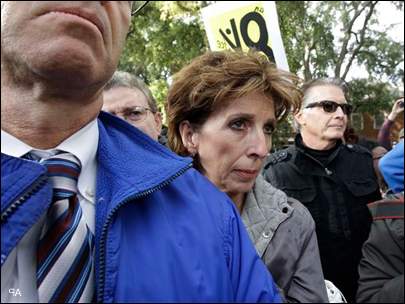
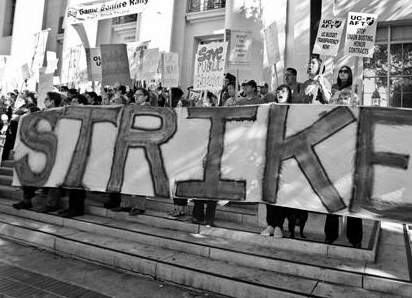
University Faculty, Staff and Students Disgusted At Direction Of California State University
Each year, the state of California makes cuts to the California State University system budget and each year students have responded with angry protests. This year however the protests were much bigger partly because of the Occupy Wall Street movement and the ongoing police brutality against students and protesters. The numbers are staggering, tuition has doubled in the last few years and the California State University Board of Trustees recently approved a 9 percent tuition increase in addition to cuts in courses and student services. Next year, the California legislature is set to impose another 200 million in higher education cuts. Meanwhile, college students from all over the nation have organized four nationwide acts of support with the Occupy Wall Street movement.
Lillian Taiz:
- We have about 430 thousand students in the California State University system.
- The number one struggle we’re having (faculty) is the defunding, the starvation of public higher education. That creates one set of problems.
- Piled on top of that is what we consider, misplaced priorities. At a time when resources aren’t that available, you really have to be careful and targeted in how you use the resources you have.
- The students, staff and faculty are disgusted on how the leadership has a focus on their one percent.
- There’s an enormous resonance with the Occupy movement because these are good middle class jobs that are being destroyed.
- Our students are watching their parents get shoved out of the middle class and hoping their education is a pathway into a decent life.
- People have finally emerged from the shock of what’s been happening, and getting angrier and angrier and getting less tolerant of adjusting to it.
- Demand: that the resources that are available be directed at the core mission of the university.
- We’re all over the state and our faculty have been part of Occupy Oakland and everwhere.
- We’ve got to take back more power and authority over our own destiny.
- Student loans are crushing our students, the leadership of the CSU and the UC seems to think the answer to their problems is privatizing the university by shifting economic responsibility to students, faculty and staff.
- They’re using us like ATM machines. We’re all being exploited and asked to be unwilling donors to the university.
- Occupy Wall Street has opened up a door to a conversation that is so long overdue.
Guest – Lillian Taiz, President of the California Faculty Association, the union that represents the 23,000 faculty members of the California State University system and to clarify, this is (not the University of California system where the pepper spray incident took place).
———————————————–
Civil Liberties, Criminalizing Dissent, FBI Intrusion, Green Scare, Habeas Corpus, Human Rights, Surveillance, Truth to Power, War Resister
Podcast: Play in new window | Download
Updates:
—-
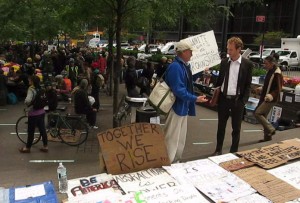
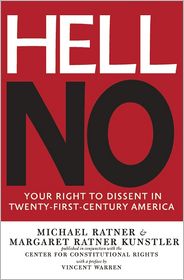
Occupy Wall Street: Attorney Margaret Ratner-Kunstler
There is a North America-wide strategy to take away the right to mass protest. We’ve talked about the book Hell No: Your Right To Dissent in 21 Century America, but today we have both authors of this book in the studio, attorney Magaret Ratner Kunstler and our own co-host Michael Ratner.
In Hell No, the Center for Constitutional Rights, the country’s leading public interest law organization, offers a timely report on government attacks on dissent and protest in the United States, along with a readable and essential guide for activists, teachers, grandmothers, and anyone else who wants to oppose government policies and actions. Hell No explores the current situation of attacks upon and criminalization of dissent and protest, from the surveillance of activists to the disruption of demonstrations, from the labeling of protestors as “terrorists,” to the jailing of those the government claims are giving “material support” to its perceived enemies. Offering detailed, hands-on advice on everything from “Sneak and Peak” searches to “Can the Government Monitor My Text Messages?” and what to do “If an Agent Knocks,” Hell No lays out several key responses that every person should know in order to protect themselves from government surveillance and interference with their rights.
Attorney Margaret Ratner-Kunslter:
- This is a time that we don’t know the return dates are because they weren’t put throught the system, they were given desk appearance tickets or summons, people arrested on the Brooklyn Bridge and elsewhere.
- Politically what do you make of the fact that they let these people stay in the park? Perhaps Michael they had an opportunity to do something about it if they did something quickly.
- In Boston, they closed it down much more quickly. Each Lawyers Guild office has a hotline.
- They (the NYPD) actually led people down to the bridge walkway. There’s a law in New York that says you can’t block roadways, but you can march on sidewalks.
- They led people down to the roadway, then announced with a bull horn that not everybody could hear of the more than 800 people on the bridge – – you’re now doing something illegally and we’re going to disperse immediately or we’re going to arrest you. Most people were chanting, nobody could hear that announcement.
- Why do this? There was no place to put these 800 people. To get their names, to get their pedigree information, to do intelligence work.
- Early on with the RNC arrests, they had a sheet of paper asking what political affiliations they had. We stopped that quickly. The police department in New York City has a tremendous intelligence division.
- Some people we have no idea why they were arrested.
- Yesterday morning a young woman was chalking on the sidewalk, “good morning NYPD.” Not only was she arrested, but the people photographing her arrest, were arrested.
- Much of the planning on how to stop demonstrators, happened after Seattle 1999. At that point there was this training program that began with all of these local police forces across the country and the FBI. It wasn’t til 9/11 that they were fully funded.
- When Michael Ratner and I wrote this, we were totally depressed because we thought that demonstrations were over. There were so many ways of preventing demonstrations and people were penned.
- You can film the police in NYC. The law may be on your side, but the police don’t follow the law.
- If you’re recording audio, and only one party knows you’re recording, that’s ok in New York.
- The cop doesn’t have to give you his name, or badge number. If you ask a cop his badge number, he’ll give you the wrong number.
- I’d like to last through winter, I’m worried about these children. The demand for justice and equality is the demand basically all over the world.
- How can we say this is too abstract for us, isn’t this what we all want?
Guest – Magaret Ratner-Kunstler, an attorney in private practice. As education director at the Center for Constitutional Rights, she originated the Movement Support Network and authored “If an Agent Knocks.” Margaret is the President of the William Moses Kunstler Fund for Racial Justice, a foundation established in 1995 in the memory of her late husband to combat racism in the criminal justice system.
———
Civil Liberties, Criminalizing Dissent, FBI Intrusion, Human Rights, Targeting Muslims, Truth to Power
Podcast: Play in new window | Download
Updates:
————–

Irvine 11 Case Update
Earlier this year 11 Muslim students were arrested on charges for disrupting a speech of the Israeli ambassador to the United States, Michael Oren. The incident took place last year on the campus of the University of California at Irvine. The local District Attorney claims that the students had no right to disrupt the event, charging them with conspiracy to shut down the ambassador’s speech, even though he was able to complete the speech. Supporters claim that the Muslim students’ actions are protected by the first Amendment, and that are being charged for being vocal critics of Israel.
Last month, an Orange County court has found 10 Muslim students guilty of two misdemeanors. Facing up to one year in jail on multiple misdemeanor charges, they were sentenced to three years of probation, 56 hours of community service and fines. Each was convicted of one misdemeanor count of conspiring to disrupt Oren’s Feb. 8, 2010 speech and a second count for disrupting it.
Attorney Lisa Holder:
- I knew there were some very difficult challenges in this case. The students modeled their protest after a protest that took place in Chicago.
- There 11 students who stood up serially, one after the other, with about 3 or 4 minutes in between.
- Each student made a short statement of protest. None of the protesters in Chicago were arrested.
- A lot of the students who had a pro-Palestine perspective were targeted.
- The prosecutor framed his whole case on the notion that the students shut down the First Amendment rights of the speaker.
- This is the way they framed it at the beginning; in the statements they made to the media.
- In terms of their framing, it makes no sense from a legal perspective.
- The way the Bill of Rights work, is to protect individuals from the government. In terms of the First Amendment which protects free speech, the Fourth Amendment that protect against unreasonable searches and seizure.
- It protects the individual from the government impeding on those rights.
- An individual can’t impede or violate another individual’s First Amendment rights, only the government can do that.
- The prosecutor should not have been allowed to argue to the jury, these students violated Mr Oren’s free speech rights.
- These are wonderful young men, they’re very gracious people and there’s no way that the judge could lose sight of that. It was outrageous, because really what was being prosecuted in their conspiracy charge was their First Amendment right to assemble.
- Penal code section 403a violates the First Amendment essentially says you can’t disrupt a meeting, violates our First Amendment to free speech.
—-
Attorney Dan Stormer:
- Islamophobia is really taking hold.
- I tend to believe it is Islamophobia, 9/11 hysteria, more Arab / Muslim focus than Israeli / Palestine focus.
- The use of conspiracy in this case allowed them to get in all sorts of evidence that might not otherwise be admissible.
- Penal Code 403 says if you upset a meeting and substantially interfere with its progress, you can be criminally prosecuted.
- I think the statute is unconstitutional and that’s going to be a primary basis for our appeal.
- The district attorney was calling for jail time. The D.A. attacked the judge subsequently for failing to give jail time. I think it is a severe sentence but given Orange County, and given the nature of hysteria against our clients, I’m ultimately please with the sentence.
- The background is they actually took this to a Grand Jury, and alleged they might file a felony conspiracy and felony allegation against them.
- Its shocking and horrifying that this prosecution went forward.
–
Guest – Attorney Lisa Holder, Los Angeles, criminal trial attorney since 2000. Ms Holder is a member of the California Bar, The National Lawyers Guild and the California Employment Lawyer’s Association. She is a member of the board of directors for the Southern California ACLU. In addition she is an adjunct professor at Occidental College, teaching pre-law classes. Ms. Holder graduated from New York University School of Law in 2000 after obtaining a Bachelor of Arts degree at Wesleyan University.
Guest – Attorney Dan Stormer, a Civil Rights, International Human Rights and Constitutional lawyer for thirty-five years and has been recognized internationally, nationally and locally as one of the top attorneys in the United States. A graduate of New York University School of Law and Wagner College, Stormer has lectured and published extensively and has taught law school at Hastings College of Law and Loyola Law School. He has obtained a number of large verdicts in gender discrimination in employment, civil rights violations, and age discrimination. He has appeared before the U. S. Supreme Court and is currently one of the attorneys on a Guantanamo Bay case.
————-
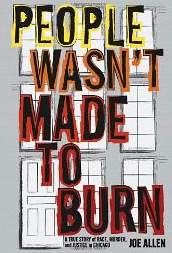
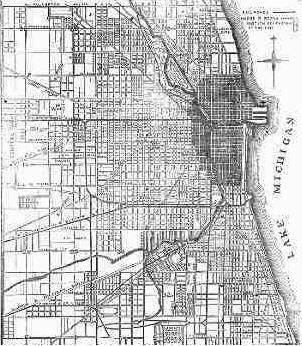
People Wasn’t Made to Burn – Joe Allen
People Wasn’t Made to Burn is a shocking personal story of a Mississippi Black share cropping family that faced incredible hardship and tragedy after moving to Chicago in 1947. Within the year, 4 of their infant children perished in a massive blaze in an overcrowded tenement. The father sickened with grief took justice in his own hands and shot the landlord, thought to have the set the fire. James Hickman was jailed and facing murder charges. The story takes off, author Joe Allen gives the reader an inside look into the strategy to defend Hickman in the most racist area of the country.
Joe Allen:
- I think his story is really symbolic of a whole generation of African Americans who left the South for the North or the West to find a better life and a measure of dignity and freedom.
- He came to Chicago and permanently settled here in 1945. He got a job in the steel industry which was very typical of African American men who came to the Midwest.
- While you were sort of welcomed here for the hard work and labor you would give particularly to the big steel plants, finding a home was the thing which was a source of incredible frustration and humiliation.
- Housing is the whole that Joe Hickman’s trial really revolves around.
- The African American population really up until the second world war, was really confined to a thin sliver of land on the south side of the city (Chicago)
- It was overcrowded, and what the banks do is try to use this limited space to make as much money as possible.
- Kitchenette apartments, one room hovels, that didn’t have running water, no electricity, rat infested.
- Richard Wright’s book – Native Son.
- James Hickman would go from one end of the city to the other looking for a place and would have the door slammed in his face each time.
- Black landlords were not very common at that time. Coleman took his money and never gave the apartment that he wanted. When James Hickman raised the issue of what happened with the money, Coleman threatened to set fire to the place.
- On January 16, 1947, a fire breaks out, it spread so quickly that Annie Hickman, the mother and wife, and one of the eldest sons, made it out of their attic apartment and jumped to safety.
- Because of the speed of the fire and incredible smoke, the four youngest kids, they suffocated and burned to death.
- Six months to the day of the death of children, he confronted Coleman at his home.
- The police acted very quickly in this case. He faced execution in the electric chair or minimum 14 years in prison.
- They pulled together a Hickman defense committee. They organized a very broad based campaign.
- Even though he was a man racked by grief he went out to find some measure of justice for his children when he couldn’t get that from the criminal justice system.
- Housing is still a crucial issue for working class people.
Guest – Joe Allen, a frequent contributor to the International Socialist Review and a long-standing activist, based in Chicago.
——————————————————–
Civil Liberties, Criminalizing Dissent, FBI Intrusion, Human Rights, Surveillance, Targeting Muslims, Truth to Power
Podcast: Play in new window | Download
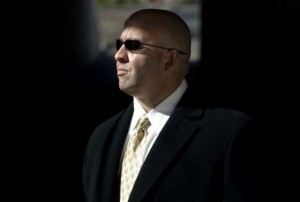
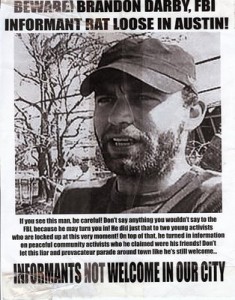
Mother Jones: The Informants
Since 9-11, the FBI now spends more than 3 billion dollars a year on counter-terrorism, the bureau maintains a team of 15 thousand spies in a nationwide network of informants. Many of these informants are tasked with infiltrating Muslims communities in the United States. We’ve discussed in the past, the expanded FBI guidelines plus the broad over reaching powers and underhanded tactics the FBI use when targeting Mosques and Muslim Americans. We talk with investigative reporter, Trevor Aaronson, about his recent article titled “The Informants” in Mother Jones Magazine. The FBI has built a massive network of spies to prevent another domestic attack. Aaronson asks “are they busting terrorist plots—or leading them?”
Trevor Aaronson:
- There are as many as 45 thousand hip pockets. A hip pocket is somebody who isn’t on the FBI’s books.
- Could be a store clerk, – you should go check out this guy. It’s never information that can be used in court or any sort of criminal affidavit. It’s what the FBI could use to build information and get tips.
- It’s all part of the FBI’s effort to build a larger network of people, that could provide information to the FBI of potential terrorist threats.
- Money is the incentive for informants. In the case of the Newburg Four outside of New York City, the informant earned 100 thousand dollars for his role in that case.
- What the FBI has been particularly fond of is using immigration as a form of leverage.
- To find people who are trying to get family over from overseas and use that as leverage, saying well, if you work with us as an informant. . .
- In the 500 defendants we looked at, 49 involved what we considered an agent provocateur, which is an informant which provided the opportunity and/or the means to move forward with a terrorist plot.
- We were able to identify by name, 13 informants who were these high level operators who moved from case to case, in some cases state to state.
- When someone pleads guilty a lot of the information about the behavior of the informant and the actions of the FBI never sees the light of day.
- Domain Management was a program that took crime data and looked for trends.
- In 2004, the FBI hired a man from the CIA named Phil Mudd to help it transition to an intelligence gathering organization.
- It started to allow the FBI to create demographic maps of specific cities. The technology that the FBI uses today are small transmitters. Informants: One thing we did find is that they usually have checkered pasts.
- They tend to be economically desperate, if not poor. In many cases they’re converts to Islam, with such an elementary understanding of Islam that the informant is able to use that against them.
- What we tried to do is build a database that we could draw conclusions from.
- I think at the this point the FBI has gone too far the other way, bringing in people who don’t have the capacity to commit these crimes.
- The FBI would admit they create a hostile environment for people who would commit terrorism. You engender this fear among the potential terrorist.
- The problem is that you create fear in the community of people that aren’t terrorists either.
Guest – Trevor Aaronson, an Investigative Reporter and Program fellow at the University of California-Berkeley.
——-
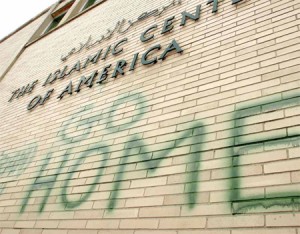
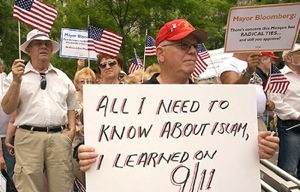
Fear Inc., The Roots of the Islamophobia Network in America
As many suspected, the attacks on September 11, 2001 didn’t drive anti-Muslim sentiment by itself. There was some help, a lot of help. In a shocking new report, seven foundations have been part of a 10 year campaign to spread Islamophobia in the United States. The 130 page report by the Center for American Progress titled Fear Inc., The Roots of the Islamophobia Network in America (PDF link) names the foundations and key individuals who have promoted Islamophobia from 2001 to 2009. The report mentions that the funds from these foundations such as Lynde and Harry Bradley Foundation, Newton D. & Rochelle F. Becker foundations and charitable trust, Russell Berrie Foundation went to think tanks and grassroots organizations to spread messages of hate and fear as far as they can. The Donor Capital fund was the single biggest contributor donating 18 million out of the 42 million in the 8 year span.
Attorney Wajahat Ali :
- This is an investigative report, an expose on how 7 funders had given 43 million dollars over 10 years to a small interconnected group of individuals and organizations responsible for mainstreaming fear bigotry and hate against Muslims and Islam in America.
- What we do for the first time is dissect and expose this network, categorize it, name the names, connect the dots.
- The network is broken into five categories.
- There are 7 funders. The next group is what I call the Islamophobia scholars and experts, which is the nerve center of this Islamophobia network. A group of about 5 individuals and organizations that are primarily responsible for creating the manufactured talking points we just heard.
- Some were mislead by these individuals, within the network who are by the way very successful, by posing as legitimate experts and scholars on Islam.
- Rush Limbaugh from the hate radio section.
- Bridget Gabriel said a practicing Muslim can’t be a loyal American.
- This group is so effective because it is so self reliant and incestuous.
- Islamophobia is an exaggerated fear, hatred and hostility toward Islam and Muslims, that is perpetuated by negative stereotypes resulting in bias, discrimination and the marginalization and exclusion of Muslims from America’s social, political and civic life.
- The report is intended for a mainstream audience. This report inoculates Americans. Inoculates them from the fear and misinformation. This report has gone viral. It’s all over facebook, its all over twitter.
Guest – Wajahat Ali, a researcher at the Center for American Progress and a researcher for the Center for American Progress Action Fund. Wajahat is a playwright, essayist, humorist, and Attorney at Law, whose work, “The Domestic Crusaders” is the first major play about Muslim Americans living in a post 9-11 America, and was published by McSweeney’s in 2011.
——-
Audio Collage – Muslim Surveillance
————————————–
Afghanistan War, CIA Sponsored Terror, Civil Liberties, Criminalizing Dissent, FBI Intrusion, Green Scare, Guantanamo, Habeas Corpus, Human Rights, Surveillance, Targeting Muslims, Torture, Truth to Power
Podcast: Play in new window | Download
Updates:
—
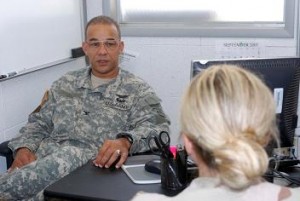
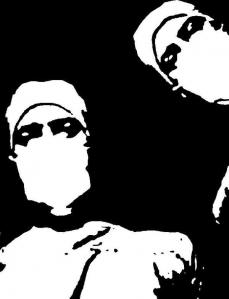
Medical Professionals Complicit In US Torture Policy
As many listeners know, health professionals were front and center and complicit in the US policy of torture. The torturers relied heavily on medical opinion. Medical professionals provided sanitizing and rationalization for the infamous torture memos. During water boarding procedures, a doctor would be present. Psychologists were directly involved in the supervision, design and execution of torture at US military and intelligence facilities. This is a violation of state laws and professional ethics. These “health professionals” that were involved with torture still hold their professional licenses to practice. Meanwhile a legal battle continues against the Louisiana Psychology Board for refusing to investigate professional misconduct allegations against Dr. Larry James. He’s a retired US Army Colonel and high ranking adviser on interrogations for the US military in Guantanamo Bay.
We talk more about this case and the breach of ethics in the medical profession since 9/11 with Dr. Stephen Soldz, former president of Psychologists for Social Responsibility. Stephen is a psychologist, psychoanalyst and public health researcher in Boston, he is also co-author of PHR’s report in Experiments in Torture.
Stephen Soldz :
- Psychologists played a central role, there were 2 professions, one was lawyers, the other less well known was psychologists. It turns out that it was psychologists that designed and implemented, the enhanced interrogation torture program, who monitored it, who trained others in it and who researched it and provided all the legal protection.
- It’s believed that it was psychologist James Mitchell who was present there, who was in charge.
- There’s the CIA program that was for so called high value detainees in CIA custody in various secret prisons called black sites. This is where the psychologists were central, they designed the whole thing.
- There was a black site at Guantanamo where a few people were held at various points.
- Guantanamo was technically under the military control, not CIA control.
- The CIA: like I said the psychologists designed this stuff, it was quite brutal. Forcing people to stand, shackling them up, with their arms out, naked in cold air. For 7 days at a time.
- Being forced to stand day after day is extraordinarily painful. Think about having to do that without using the toilet, with liquid food being forced into you. They at times used small boxes where a person could neither stand or sit.
- The boxes were banged on at times, they would throw people against walls, with special devices around their neck supposedly to protect them from permanent damage. There were various slaps that were authorized.
- The American Psychology Association has an ethics code and its binding on all members. Not all psychologists are members, but all the states base their own ethics code for licensed psychologists upon that of the APA, some mandate it exactly some adopt their own.
- The CIA and military insist that the psychologists that do this stuff be licensed by the state.
- Many of them are APA, so the APA ethics are intimately involved here.
- The APA equivocated and formed a task force. They said that psychologists had an obligation to keep interrogations, safe legal and effective. This language it turns out was taken from the Bush torture memos at the Justice Department. The task force was dominated by the military.
- They claim to be resolutely against torture, they make statement after statement. Psychologists shouldn’t be safety officers.
- In all 3 states, lawyers have joined my colleagues to force the APA board to do their job. The board doesn’t have the leeway to dismiss claims of torture without clearly investigating them.
- Larry James was a Biscuit 1 and later served at Abu Ghraib after the scandals there, he claims to have been the person who cleaned it up.
- He admits that he observed abuse by other people and didn’t report it to the commanders.
- He’s now out of the military and the Dean of the School of Psychology at Wright State University in Ohio.
- It’s rather sad, instead investigating what did or did not happen, they attack those who raise issues about Colonel James.
- Physicians For Human Rights / When Healers Harm
Guest – former President of Psychologists for Social Responsibility, Stephen Soldz is a psychologist, psychoanalyst, and public health researcher in Boston, and was a co-author of PHR’s report Experiments in Torture. He is the Director of the Center for Research, Evaluation, and Program Development at the Boston Graduate School of Psychoanalysis. He was Adjunct Assistant Professor of Psychology (Psychiatry) at Harvard Medical School, and has taught at the University of Massachusetts Boston, Boston College, and Boston University.
——–
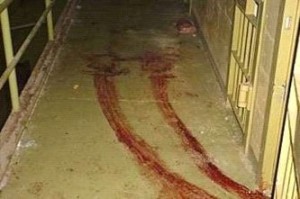
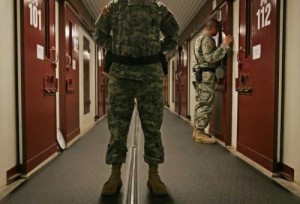
Guantanamo Bay and Offshore Prisons
The Obama Administration has allowed the Bush policy to continue allowing for the practice of torture, rendition and secret prisons to continue. We talk about the ongoing practice of torture, secret sites and Guantanamo Bay. There are 3 groups at Guantanamo, the first is 2 dozen that are genuinely Al Qaeda. The second group shouldn’t have been there in first place, around 200 of them will be sent home. The third group are refugees who are from countries with horrible human rights records.
Attorney Vince Warren:
- What role do the people play in order to stop this? (wars) We are at war to make war is what the public has bought into. By using the war paradigm, the president seized power that belonged to Congress, seized power that belonged to the Courts and seized power that belonged to the people.
- You can’t be at war with the “concept” of terror.
- Prior to 9-11 when terrorism would happen. There was an investigation, an indictment, prosecution and if there was a case, they were to be convicted.
- As of 2011, more people in Guantanamo have died than have been referred for criminal charges.
- We shouldn’t fool ourselves into thinking that this was a genuine reaction to a tragic event.
- This aggressive war(s) that are based on lies, without any legitimate security threat, is a crime.
- The other piece since 9-11 is the interesting double speak. Torture and aggressive war become justifications since 9-11.
- The Bush Justice Department said that the law simply does not just apply to the President, when he’s acting as Commander In Chief. It doesn’t matter if Congress passed a law that we expect the President to be bound, the Justice Department said he could ignore it if it didn’t fit in to what he wanted to do.
- That led to the Bush lawyers counseling him that he could ignore a law that said torture was illegal or could ignore a law that says the government can’t wiretap without a warrant.
- President Obama talked very big about ending torture and about ending these policies.
- What is happening now in the United States is that local police forces, immigration forces, private contractors are colluding and conspiring to infiltrate political movements and largely peaceful political movements.
- – in order to “uproot the terrorist.”
- Course there are no terrorists there, what there are are people who have a very vibrant and credible claim.
- Myself and a number of other human rights people went to a meeting with President Obama in May 2009. I was shocked at how President Obama completely understood the legal issues we were raising.
- The very next day he essentially came out with a preventive detention scheme. An indefinite detention scheme in Guantanamo.
- What really troubled me is that he knows. He knows precisely what the right thing to do is.
- This thing is not going to fix itself. CCR Facebook – Twitter @theCCR
Guest – Attorney Vince Warren, Executive Director of the Center for Constitutional Rights, a national legal and educational organization dedicated to advancing and defending the rights guaranteed by the United States Constitution and the Universal Declaration of Human Rights. Vince oversees CCR’s groundbreaking litigation and advocacy work which includes using international and domestic law to hold corporations and government officials accountable for human rights abuses; challenging racial, gender and LGBT injustice; and combating the illegal expansion of U.S. presidential power and policies such as illegal detention at Guantanamo, rendition and torture.
—————————————-
Afghanistan War, Civil Liberties, Criminalizing Dissent, FBI Intrusion, Green Scare, Guantanamo, Habeas Corpus, Human Rights, Iraq Veterans, Iraq War, Political Prisoner, Surveillance, Targeting Muslims, Torture, Truth to Power, War Resister
Podcast: Play in new window | Download
Updates:
—
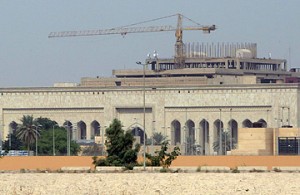
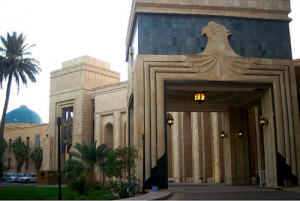
The State of Perpetual War
Since September 11, 2001 the US global war on terror has reached beyond Afghanistan and Iraq. The US constructed the largest embassy ever in Baghdad to control the resources of Iraq. Meanwhile strikes against Pakistan, Yemen, and Somalia, led an air war against Libya without any Congressional authorization continue as pointed out by author Anthony Arnove. In his article titled The 10th Anniversary of 9/11 Arnove describes US foreign policy of preventive war and how the US continues to use drone strikes against Pakistan, Yemen and Somalia. Now other countries are adopting the preventive war idea to fight (quote) terrorism. Today, the Obama Adminstration has gone beyond the Bush policies as trillions are spent on perpetual war while schools, health care and social needs crumble.
Anthony Arnove:
- 911 was seized upon by the Bush Administration as an opportunity. Condoleezza Rice specifically used the word opportunity to describe the geo-political shifts that she saw occurring in the wake of 9-11.
- We’ve seen the invasion of Iraq, the invasion of Afghanistan, covert operations and Arab bombardment of dozens of countries. There’s an estimate now that this year the US will be operating in 120 countries in some capacity through use of commandos.
- You’ve seen increased troop levels in Afghanistan so that even with the current so called draw down of the troops in Afghanistan, even with the reductions that are currently being undertaken, we’re still going to be ahead of the number of troops that were in Afghanistan at the end of the Bush Administration.
- Withdrawal, the word no longer has any meaning. It actually means slight reduction of troops after they’ve been increased.
- There are 46 thousand active duty troops in Iraq. The claim is that those 46 thousand will leave at the end of 2011 after an agreement reached under pressure from social movements in Iraq.
- Then you look at the military installations that scatter the country, they’re not going to walk away from that easily.
- In Afghanistan, they’re literally talking about dates as far as 2024 in terms of troops on the ground involved in a number of capacities.
- I think Libya is truly an opportunistic action by the United States concerned its losing control in the middle east. You’ve had uprisings and revolutions that have toppled governments aligned with the United States.
- The US has been so contemptuous of the freedoms of people around the world. So contemptuous of democracy, so contemptuous of people fighting for self determination.
- So contemptuous of nationalist movements that would have put resources into the control of the people.
- The actions of the Bush Administration and now Obama have only made us more hated, and made the world more dangerous.
- They claim they’re making the world more safe, and protecting us. The reality is the opposite.
- At least Barack Obama will be more responsive to social movements, we’ll be able to pressure him. It is clear that is not the case, there has been a demobilizing of sections of the anti-war movement who define the political horizons as the debate between the Republicans and Democrats.
- The anti-war movement has been silenced.
- The people who most vociferously supported invading Iraq, claimed there would be weapons of mass destruction, all of those things we now know to be lies, those people are regularly asked to be commentators on Iraq and Afghanistan.
- Yet the people who got it right, saying this is what will happen if we invade, those people are never heard from.
- The gap between what the elite are doing and what they are saying, and what is in their interest and the interest of ordinary people has never been wider.
- On October 6, 2011, a number organizations have called for demonstrations in Washington DC and solidarity actions in other cities. On October 15 actions have been called for by the United National Anti-War Coalition. NationalPeaceConference.org
Guest – Editor and writer Anthony Arnove. He is best known for his books on Iraq and the Iraq War. Arnove is the author of the book Iraq: The Logic of Withdrawal, published in hardcover by the New Press and in paperback by Haymarket Books. Arnove toured the country promoting the book in spring 2006 as part of the New Press’ “End the War Tour”.
Arnove is also the editor of Iraq Under Siege, published by South End Press, the co-editor with Howard Zinn of Voices of a People’s History of the United States, published by Seven Stories Press, and the editor of The Essential Noam Chomsky, published by the New Press. He writes frequently for left-wing publications; he is a featured author at ZNet, a columnist for Socialist Worker, and on the editorial board of the International Socialist Review.
—
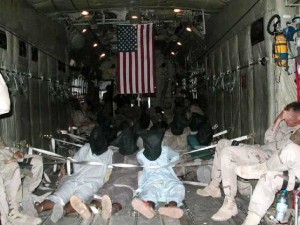
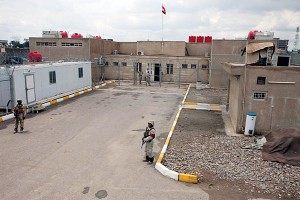
The Guantanamo Syndrome
Attorney Michael Ratner:
- Pinochet’s Operation Condor was to round up opponents all over the world to torture and imprison them. This is now an American Operation Condor.
- AUMF and Military Order #1 allow the administration to use drones around the world. This is the key piece of legislation. Out of the AUMF came military order # 1, November 13, 2001. The president can arrest anybody, they can be kept anywhere, American citizen or not.
- From there flows the Guantanamo Syndrome. Habeas Corpus, a person who’s the prisoner of the executive can go to court and say put the executive on the defensive. Why am I being held? You have to have a legal basis.
- After many years of litigation representing this incommunicado people at Guantanamo, we ended up representing their parents or relatives, because we couldn’t represent them, the Supreme Court finally said, it’s a Constitutional right to go to court to test your detention. They said that about the people in Guantanamo in particular, they didn’t say that about the people in Baghram or other places.
- Once we won that right, the Bush Administration and the Obama Administration went into court and completely opposed that right having any meaning. It is really an unrecognizable world from what we had ten years ago.
—-
Audio Collage
- Surveillance State: The 51st State
- Targeting Muslims Since 9-11
——————————————————————






















